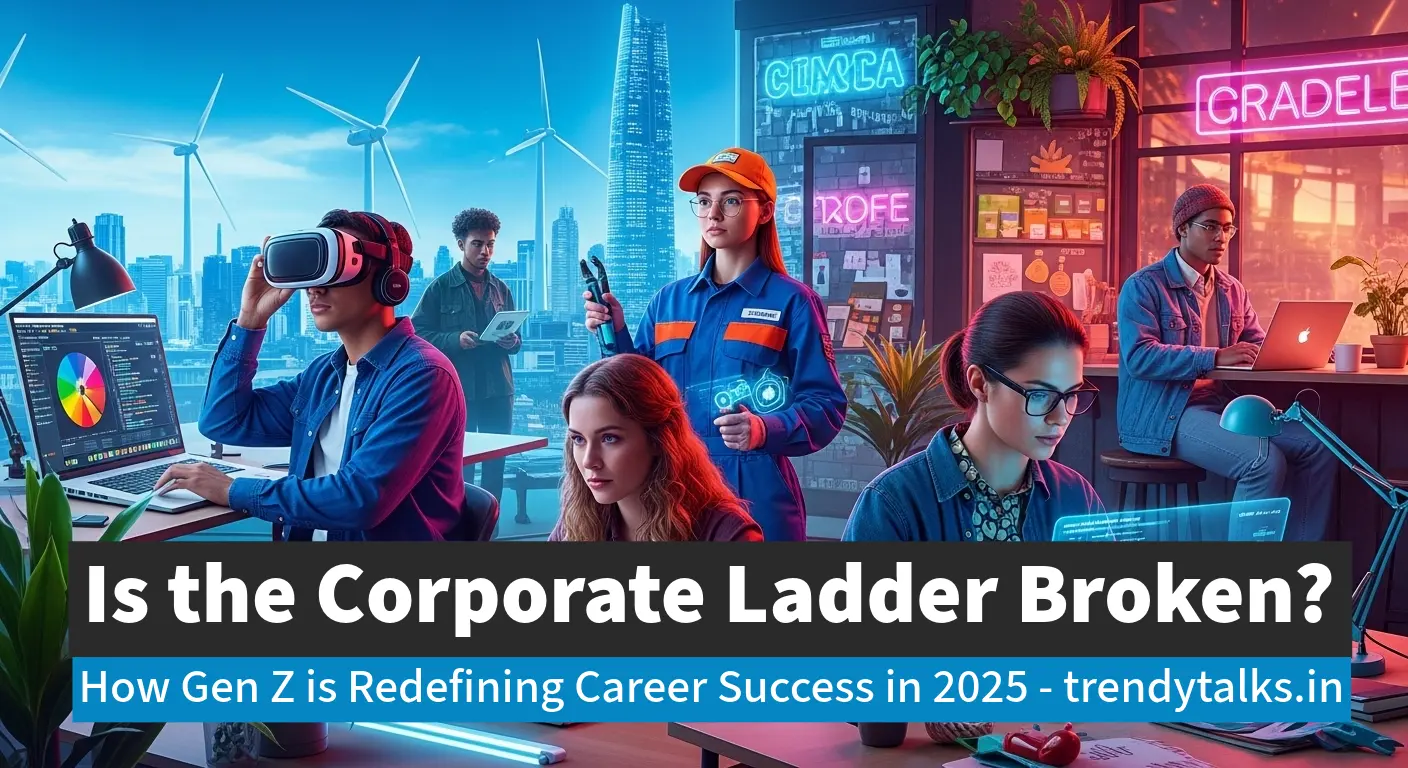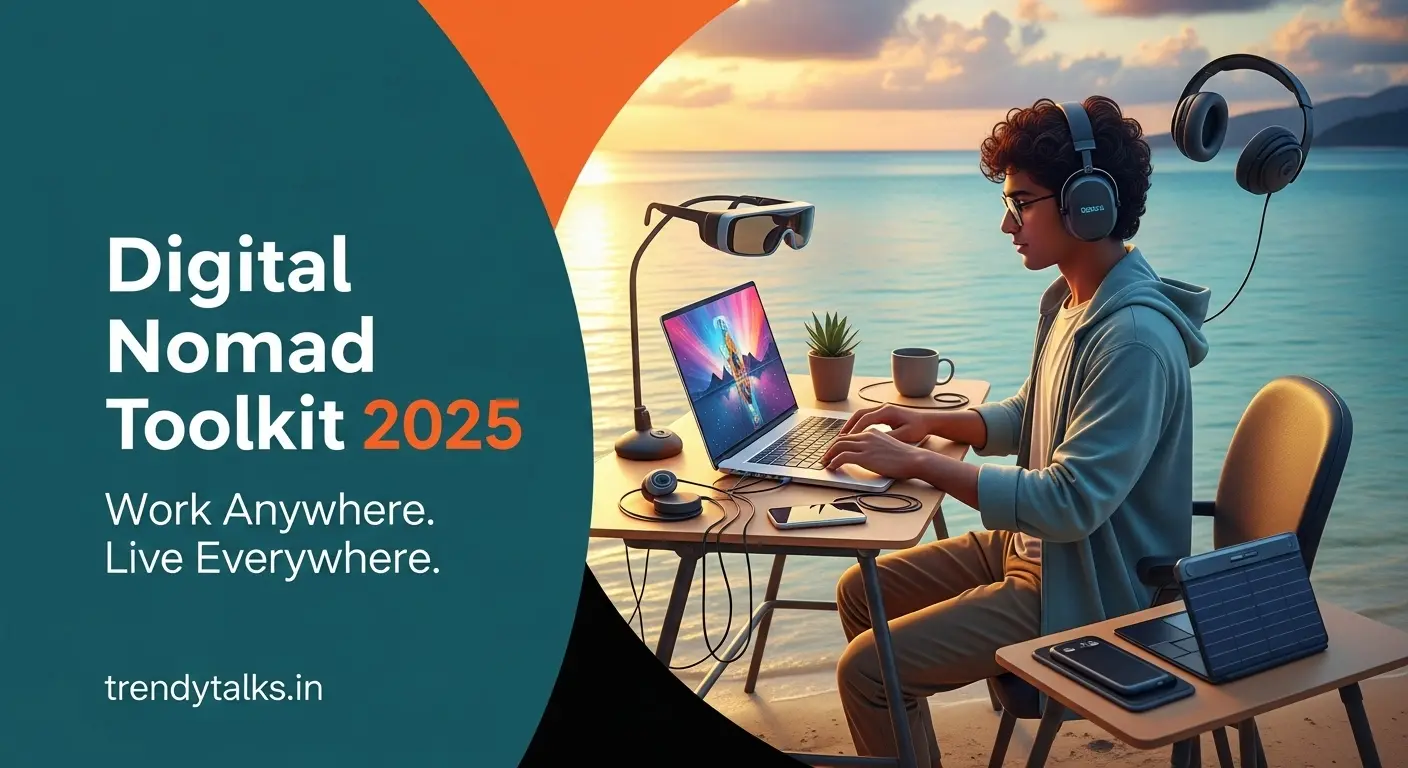The job market is changing. For decades, the path to a great career was clear: get a degree, land an entry-level job, put in long hours, and climb a single corporate ladder. This model, however, is quickly crumbling under the weight of a new generation: Generation Z.

Born roughly between 1997 and 2012, Gen Z is entering the workforce at a time of massive economic, social, and technological upheaval—from a global pandemic to the rise of AI. Unlike previous generations who chased security or prestige, this cohort is charting a radically different course, prioritizing personal values, flexibility, and a portfolio of skills over a fancy job title.
This isn’t just a preference; it’s a non-negotiable shift that’s forcing employers everywhere to adapt. This article breaks down the essential skills, core values, and real-world outcomes that define the Gen Z career in 2025, offering a clear roadmap for anyone looking to hire, manage, or join this transformative generation.
What Skills and Values are Most Important to Gen Z in the Workplace?
Gen Z’s approach to work is a direct reaction to the burnout and instability witnessed by their Millennial predecessors. Their core values are simple but powerful: balance, purpose, and impact.
A key finding from a recent Deloitte survey shows that for nearly 9 in 10 Gen Z individuals, having a sense of purpose in their job is crucial to their satisfaction and well-being. This isn’t just about charity; it’s about seeing how their daily work connects to a meaningful outcome.
Think of it like choosing a phone: previous generations might have valued the brand name and the hefty manual, but Gen Z wants an intuitive, multi-functional device that genuinely improves their life—they value the utility over the label.
What is the Gen Z "Anti-Hustle" Mentality?
The “anti-hustle” is the biggest change. For Gen Z, setting boundaries isn’t a sign of laziness; it’s a sign of professionalism.
- Work-Life Balance is King: A significant majority of Gen Z workers—around 91%—say work-life balance is important to their career success. They’d often prefer a lower salary for a hybrid or remote role that respects their personal time.
- The Right to Disconnect: With the lines between home and work blurred by technology, Gen Z champions the idea that professional life shouldn’t bleed into personal hours. Some countries are even passing “right to disconnect” laws, signaling a global shift toward respecting employee downtime.
For employers, this means that a ping-pong table and free snacks are less appealing than a clear policy on not sending emails after 6 PM.
What are the Most In-Demand Skills for Gen Z in 2025?
While digital fluency is a given, the top skills for Gen Z in 2025 are a blend of technical capability and crucial soft skills needed to navigate a rapidly changing, automated world.
- AI & Data Literacy: This is non-negotiable. Gen Z employees are often the first to integrate AI tools into their workflow. According to a Google Workspace survey, over 90% of Gen Z workers use at least two AI tools weekly. This isn’t just using the tech; it’s understanding how to ask the right questions and interpret the data it provides.
- Emotional Intelligence (EQ): As routine tasks are automated, the uniquely human skills—like empathy, conflict resolution, and complex communication—become premium. Managers are increasingly looking for young talent who can lead with genuine feeling and clarity.
- Adaptability and Resilience: Having experienced immense global disruption early in life, this generation understands that career paths won’t be linear. They prioritize roles that offer continuous, fast-paced learning. They view their career less as a ladder and more as a “jungle gym”—a set of diverse skills and experiences that allow for lateral movement and pivot.
Critical Fact: A recent study indicated that 70% of Gen Z are proactively developing new skills at least once a week, often on their own time, showing an intense commitment to being future-proof.
Are Gen Z Workers Finding it Harder to Get a Job?
Yes, the job market for Gen Z is proving to be incredibly challenging, despite their skills.
The simple problem: mass applications and fewer entry-level roles. Data from the World Economic Forum shows that global entry-level job postings have fallen sharply, leading to intense competition. Compounding this, the ease of applying via AI tools has created a flood of applications for every opening.
- The Resume Volume Trap: It’s like a single casting call for a blockbuster movie. While a thousand people show up, only one role is available. This results in high rejection rates, which can lead to a confidence gap—a feeling of self-doubt despite high ambition.
- Rapid Turnover: Because many Gen Z job seekers are “settling” for roles that don’t match their long-term goals, their average job tenure is notably short—around 1 years for early-career Gen Z, compared to 1.8 years for Millennials at the same career stage. They are willing to move fast if the environment lacks clear progression or purpose.
The key takeaway for employers here is the need for transparency. Gen Z demands clear, documented pathways for skill acquisition and advancement, not just vague promises of “growth.”
Why is Financial Stability a Gen Z Priority?
Although Gen Z is famously purpose-driven, they are not naive about money. They are entering the workforce facing high student debt, soaring housing costs, and an economy marked by instability. This has made financial stability a top-tier value, though they often pursue it through non-traditional means.
- The Rise of the Side Hustle: Nearly 60% of Gen Z workers report having a side hustle. This isn’t just for extra shopping money; it’s a strategic move to build multiple income streams, gain diverse skills, and create a buffer against job market volatility. It’s their equivalent of a financial safety net.
- Stability in the Unexpected: Having witnessed tech layoffs, Gen Z is increasingly applying to roles in traditionally “boring” but stable sectors like government, finance, and healthcare, often bringing their digital skills to modernize these industries. They are smart, risk-aware innovators.
How is Gen Z Changing the Definition of Professionalism?
Gen Z is discarding the idea that professionalism means a suit-and-tie, 24/7 availability, or prioritizing the company’s needs over their own. Instead, they define professionalism by:
- Output over Hours: They focus on high-quality results and efficiency, not on “time served” at a desk.
- Authentic Alignment: They need company values to be real, not just corporate buzzwords. They’re quick to call out performative actions. This is why 75% consider diversity, equity, and inclusion (DEI) when choosing an employer.
- Continuous Feedback: They crave frequent, real-time feedback and mentorship, viewing it as essential for accelerating their skills—a reflection of the instant, digital feedback loops they grew up with.
Conclusion: The New Career Covenant
Gen Z isn’t destroying the modern career; they’re improving it. By demanding flexibility, mental wellness support, and a direct line between their work and a meaningful impact, they are creating a new gold standard that will ultimately benefit all workers. Their career path is less of a straight climb and more of an entrepreneurial journey where they are the CEO of their own skills portfolio. For businesses, the challenge is clear: stop selling the ladder and start building a better jungle gym.
What do you think is the single most undervalued skill Gen Z brings to the workplace, and how can employers better recognize it?
FAQs
Q. What are the top 3 work values for Gen Z?
Ans. The top three work values for Gen Z are work-life balance (prioritizing personal time), purpose/meaningful work (seeing their work’s impact), and financial stability (often achieved through side hustles).
Q. How does Gen Z define professional boundaries?
Ans. Gen Z defines professional boundaries by prioritizing output over hours and embracing the “right to disconnect.” They view setting clear limits on work availability (like avoiding after-hours emails) as essential for mental health and sustainable performance, not as a lack of dedication.
Q. What are Gen Z’s career expectations for growth?
Ans. Gen Z expects clear, transparent, and fast career progression—with many expecting a promotion within the first 18 months. They prefer skill acquisition and impact expansion over traditional title changes, viewing their career as a “jungle gym” of diverse experiences.
Q. Why is the side hustle so popular with Gen Z?
Ans. The side hustle is popular with Gen Z because it offers a vital financial safety net against economic uncertainty, allows for rapid skill acquisition outside of a primary job, and provides the autonomy and control that they highly value in their professional lives.
Q. What is the biggest challenge Gen Z faces in the 2025 job market?
Ans. The biggest challenge Gen Z faces is a lack of entry-level opportunities combined with massive competition. The ease of applying using AI has led to an overwhelming volume of applications for a shrinking pool of early-career roles, resulting in high rejection rates.



